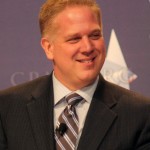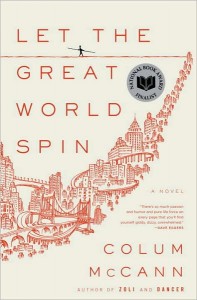“When I see three oranges, I juggle,” the then 24-year-old highwire daredevil Philippe Petit is supposed to have said in 1974 after his 110-story-high prance between the two unfinished towers of the World Trade Center. “When I see two towers, I walk.”
 When Glenn Beck sees his foot, he inserts it in his mouth, and then brags about the taste.
When Glenn Beck sees his foot, he inserts it in his mouth, and then brags about the taste.
Mr. Scatter hesitates to write about the ubiquitous Mr. Beck. He looks back fondly on his days of innocence, just last summer, when he was able to ask, with all seriousness, “Who’s Glenn Beck?” How he’d managed to cocoon himself for so long he doesn’t know, but he misses those warm and fuzzy days.
 Two recent events, conjoined by accident, have brought Mr. Beck unfortunately to mind.
Two recent events, conjoined by accident, have brought Mr. Beck unfortunately to mind.
First, Mr. Scatter attended his monthly book group, where the topic of discussion was Let the Great World Spin, last year’s National Book Award-winning novel by Colum McCann, in which Petit’s act of acrobatic bravado is the springboard to a grand contemplation of chance, hope and grace.
Second, Mr. Scatter read Laurie Goodstein’s report in the New York Times, Outraged by Glenn Beck’s Salvo, Christians Fire Back. It seems that Mr. Beck, on his radio program, urged his followers to “run as fast as you can” if they see or hear anything in their churches referring to “social justice” or “economic justice.” Those are code words, he said, for Communism and Nazism and should be shunned like, well, the devil. It’s an odd pairing, at any rate: Was Mr. Beck down at the pool hall or out stoning adulteresses the day his high school history class covered the Siege of Leningrad? “If you have a priest that is pushing social justice,” he intoned, “go find another parish. Go alert your bishop.”